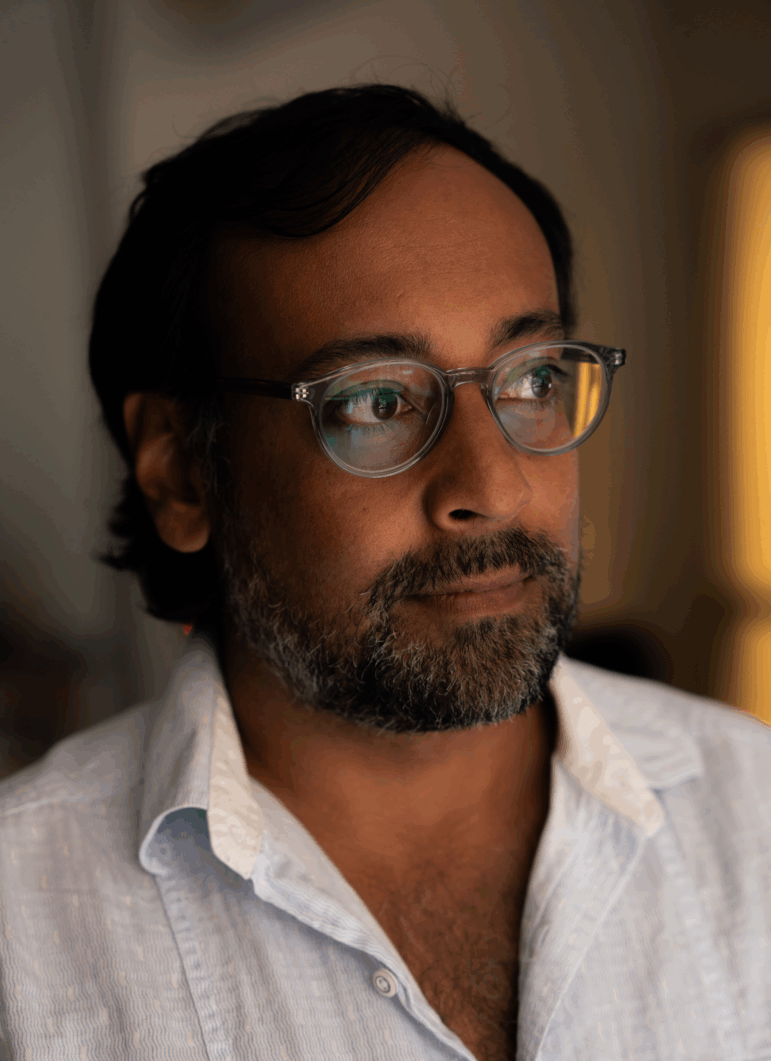By his own description, Nabarun Dasgupta digs through drug overdose data obsessively, scrutinizing the latest numbers from around the U.S. for clues about America’s deadly overdose crisis.
In 2024, the researcher at the University of North Carolina at Chapel Hill was one of the first scientists in the country to realize something new was happening: “I was going through [reports] state-by-state and all the graphs kind of pointed downwards,” Dasgupta told NPR.
Fatal overdoses were dropping fast, the biggest, most hopeful shift in decades. At a time when many politicians and most experts were talking about what seemed like an unstoppable fentanyl crisis, Dasgupta showed deaths had actually been declining steadily in many states since 2021.
“It has been a complete shock, the numbers declining in the way that they have been,” Dasgupta said, referencing local, state and federal reports, as well as data from hospitals and first responders around the U.S. “After all this time looking at overdose deaths, this is what we’ve been hoping for.”
Dasgupta’s groundbreaking research has now been recognized by the MacArthur Foundation with one of this year’s coveted “genius” fellowships, which come with a monetary award of $800,000. In a statement, the foundation also pointed to his work outside the lab, helping develop “harm reduction” programs aimed at reducing drug deaths.
“He collaborates with people who have experience with drug use or its consequences to design effective, evidence-based interventions that respond to the needs of people who use drugs and community-based organizations that support them,” MacArthur Foundation officials said.
A researcher who lost friends while studying a deadly crisis
Beginning with projects in rural North Carolina, Dasgupta — known to friends and colleagues as Nab — helped develop a national network that samples and analyzes street drugs, part of an early warning system that detects toxic chemicals being mixed into the drugs sold by dealers.
He also co-founded a national effort called the Remedy Alliance / For The People that distributes huge amounts of naloxone. That’s the drug that reverses opioid overdoses, credited with saving tens of thousands of lives.
“The work that Nab is involved with definitely saves lives, to the tune of tens of thousands of people,” said Maya Doe-Simkins, Remedy Alliance’s co-director.
According to Doe-Simkins, Dasgupta is one of the few researchers studying addiction who has deep sources of information and knowledge in street communities and among front-line public health workers where drug use is happening.
“Oftentimes there’s a disconnect, and Nab is different. He’s connected with people who are generously sharing, back and forth, ideas and innovation and creativity. That’s what sets him apart,” she said.
Dasgupta told NPR he was stunned to be recognized by the MacArthur Foundation. He described receiving the news at a bittersweet moment. His team in Chapel Hill had gathered for a ceremony to honor a colleague and nationally recognized addiction activist in North Carolina named Louise Vincent. Vincent died in August after struggling for years with health complications linked to her drug use.
“I walked back into my office and closed the door because I needed a moment,” Dasgupta said. “That’s when I got a call from the foundation. I don’t know if it’s possible to simultaneously cry tears of joy out of one eye and grief out of the other, but that’s what that moment really felt like.”
Dasgupta says doing this kind of work with people who are deeply vulnerable, who far too often overdose and die, takes an emotional toll. But he described this moment as validation. “I don’t think the universe could send a clearer signal that we should keep going in the direction that we’re going in,” he said.
Drugs deaths are now at their lowest level in the U.S. in half a decade, but fentanyl, methamphetamines and other substances are still causing more than 70,000 fatal overdoses a year. Dasgupta said this award will help him keep fighting to save more lives.
The MacArthur Foundation is recognizing and supporting Dasgupta’s work at a time when many harm reduction programs are under attack. The Trump administration is pushing to shift funding and support away from efforts, like those developed by Dasgupta, that help people using street drugs avoid death and severe illness.
Critics say harm reduction can enable or prolong drug use, though those claims haven’t been borne out by research. Dasgupta said he’s convinced the science supports continued use of harm reduction as an approach to saving lives. He told NPR he also thinks it’s ethically necessary to offer care and support to people even when they’re not yet able to stop using drugs.
“I think harm reduction is a problem-solving strategy, based on the ancient wisdom that all lives have dignity and value, regardless of what they put in their bodies,” he said.

